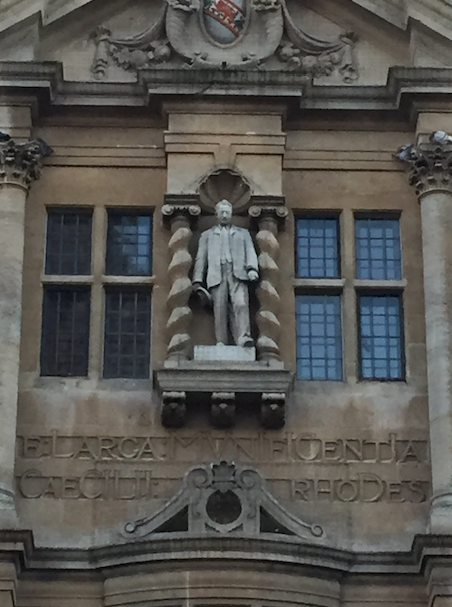Book your place for this online public talk (12 November, 2-4pm), co-chaired by politics lecturer Dr Heba Youssef and anthropology and psychology academic Dr Nichola Khan, which will explore the turbulent debates over the statue of Rhodes at Oxford University.
The University of Brighton’s Centre for Spatial, Environmental and Cultural Politics (CSECP) announces two eminent speakers, Zeinab Badawi and William Beinart, who will be joining CSECP experts to delve into the debates about the Rhodes statue at Oriel College, University of Oxford that came to wide public attention through the Rhodes Must Fall campaign, as well as the constantly shifting position of the Oriel College commission inquiry into what to do with the statue.
- When: 12 November, 2-4pm
- Book here through TicketSource
William Beinart is emeritus Professor at St. Antony’s College and the African Studies Centre at University of Oxford. A renowned journalist and broadcaster, Zeinab Badawi is the newly elected President of London’s School of African and Oriental Studies (SOAS), following a term as Chair of the Royal African Society.
Cecil Rhodes (1853-1902) gave his name to Rhodesia, before its post-colonial renaming as Zimbabwe, and his statue was erected in 1911 on the facade of a new Oriel College building for which Rhodes donated money in his will. Despite Rhodes Must Fall protests in Oxford in 2015-6, the College governing body decided to keep the statue in place.
However, they changed their minds in July 2020, following mass protests worldwide inspired by the Black Lives Matter movement which arose after the murder of George Floyd. The College publicly indicated an intention to move the statue, and appointed a commission to advise on the process, on which Zeinab Badawi and William Beinart both served.
Yet in May 2021, the College governing body changed its mind again, citing issues related to the Listed building planning process around government consent. The government has indicated that it will not agree such planning requests, preferring instead a ‘retain and explain’ strategy to offer context around Cecil Rhodes’ actions and attitudes during an era of colonial takeover in Africa.
The November 12 debate will include a discussion led by William Beinart exploring the historical evidence and arguments for moving the statue, while Zeinab Badawi will discuss her experience of the Oriel College commission, as well as wider initiatives to promote diversity and African Studies.
Dr Nichola Khan, Director of CSECP said: “In recent years many public institutions have responded to political pressures to reflect on Britain’s and other countries’ imperial pasts, and on elements of colonialism that continue in knowledge production within politics, medicine, law, economics, human rights, and international development.

Institutions such as the National Trust, museums and universities have made efforts to recognise these legacies—for example, this month will see the return of a looted royal ancestral Benin bronzes to Nigeria. We have also seen other high-profile campaigns to remove statues of arch colonialists, such as the toppling of the slave trader Edward Colston’s statue in Bristol in 2020.
This important talk discusses not only of the legacy of Rhodes and colonialism in Southern Africa and Zimbabwe, but of wider public opinion and interest in the harms and contested legacies of race and empire more broadly. We are immensely fortunate to have the insights of broadcaster Zeinab Badawi and Professor William Beinart.


Published by